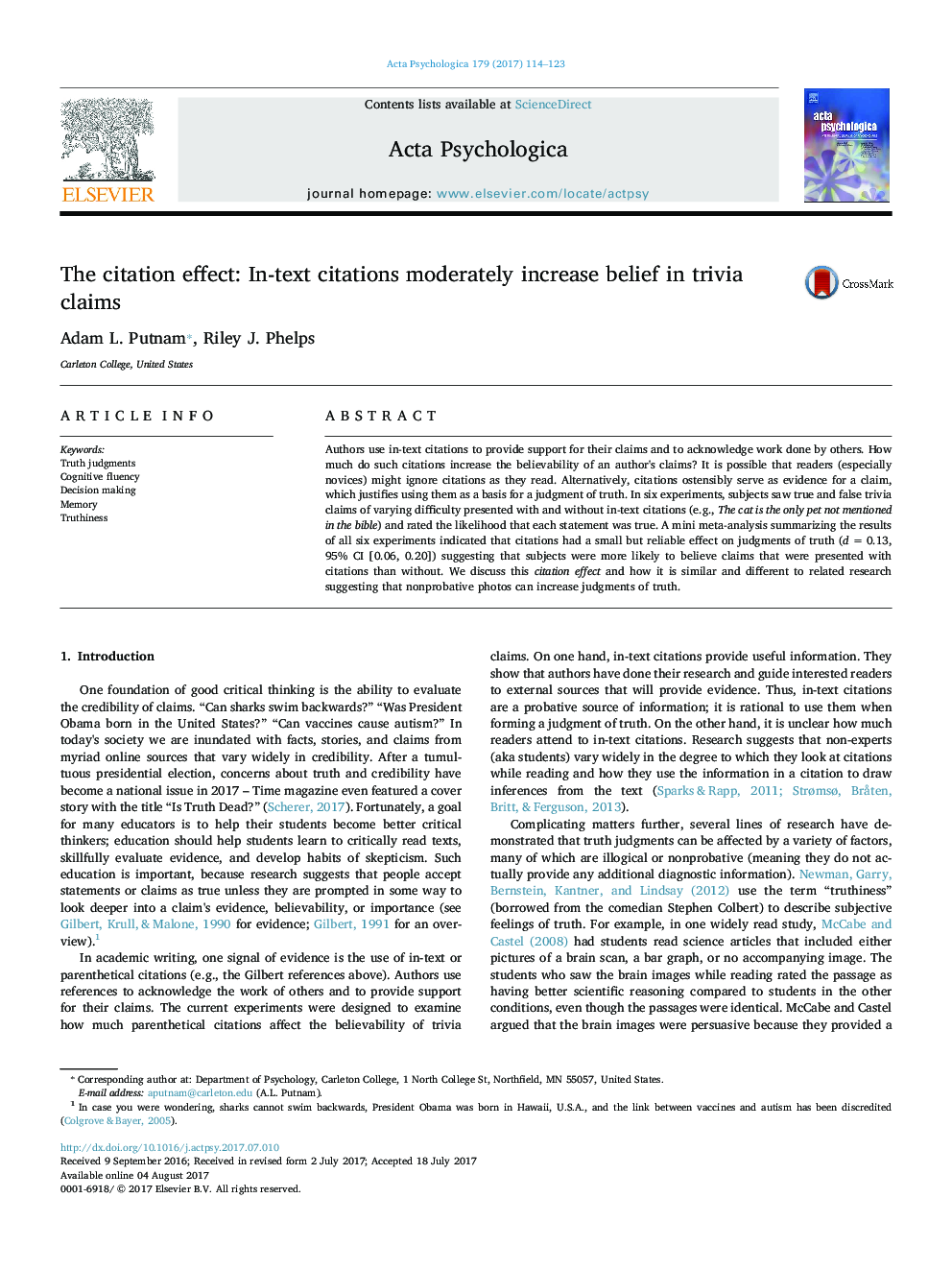| Article ID | Journal | Published Year | Pages | File Type |
|---|---|---|---|---|
| 5040229 | Acta Psychologica | 2017 | 10 Pages |
â¢True and false trivia claims were presented with and without in-text citations.â¢Six experiments varied the difficulty of the claims and subject instructions.â¢Citations sometimes led to higher truth ratings and sometimes did not.â¢A meta-analysis of six experiments showed that citations led to higher truth ratings.â¢Citations make statements slightly more believable.
Authors use in-text citations to provide support for their claims and to acknowledge work done by others. How much do such citations increase the believability of an author's claims? It is possible that readers (especially novices) might ignore citations as they read. Alternatively, citations ostensibly serve as evidence for a claim, which justifies using them as a basis for a judgment of truth. In six experiments, subjects saw true and false trivia claims of varying difficulty presented with and without in-text citations (e.g., The cat is the only pet not mentioned in the bible) and rated the likelihood that each statement was true. A mini meta-analysis summarizing the results of all six experiments indicated that citations had a small but reliable effect on judgments of truth (d = 0.13, 95% CI [0.06, 0.20]) suggesting that subjects were more likely to believe claims that were presented with citations than without. We discuss this citation effect and how it is similar and different to related research suggesting that nonprobative photos can increase judgments of truth.
